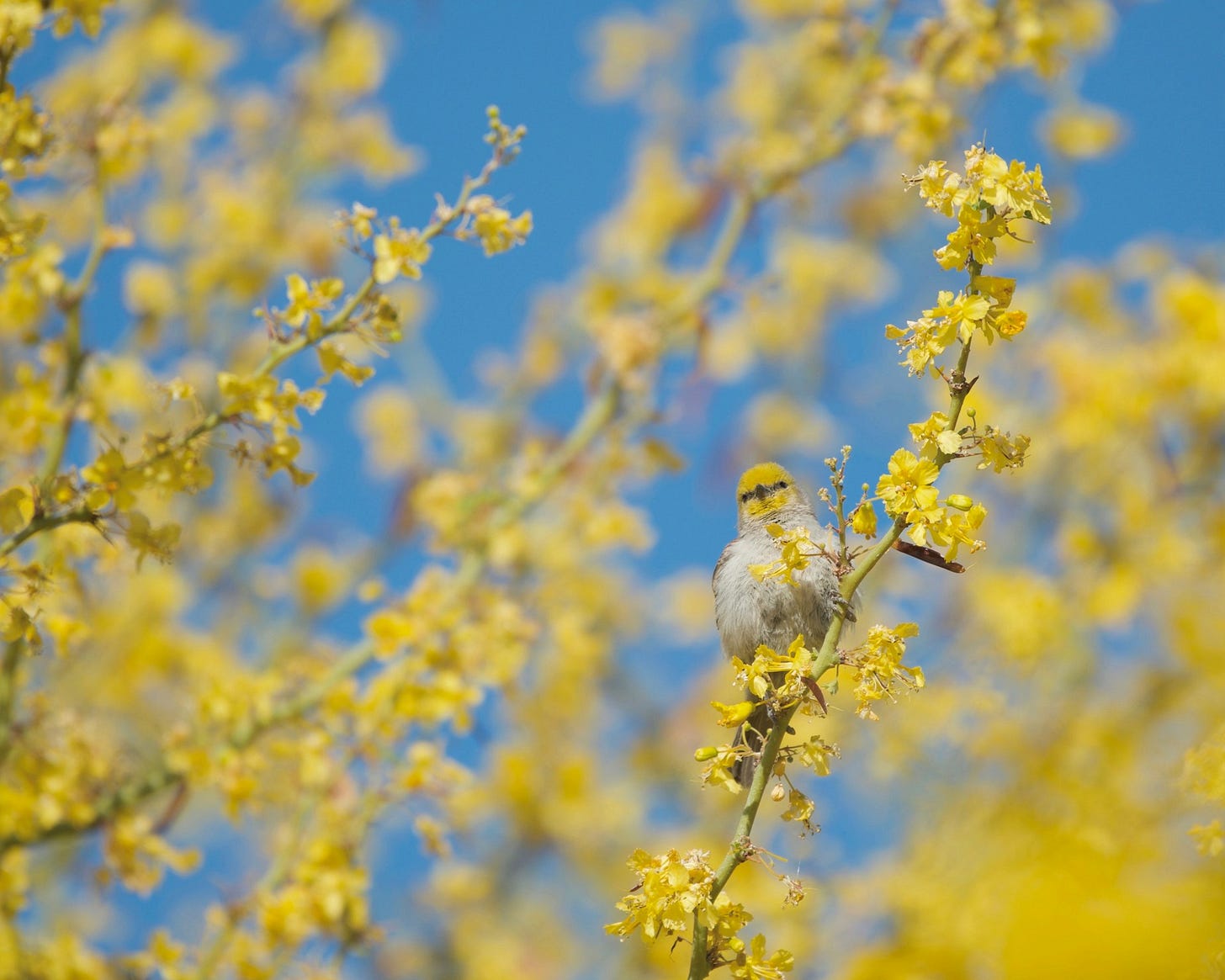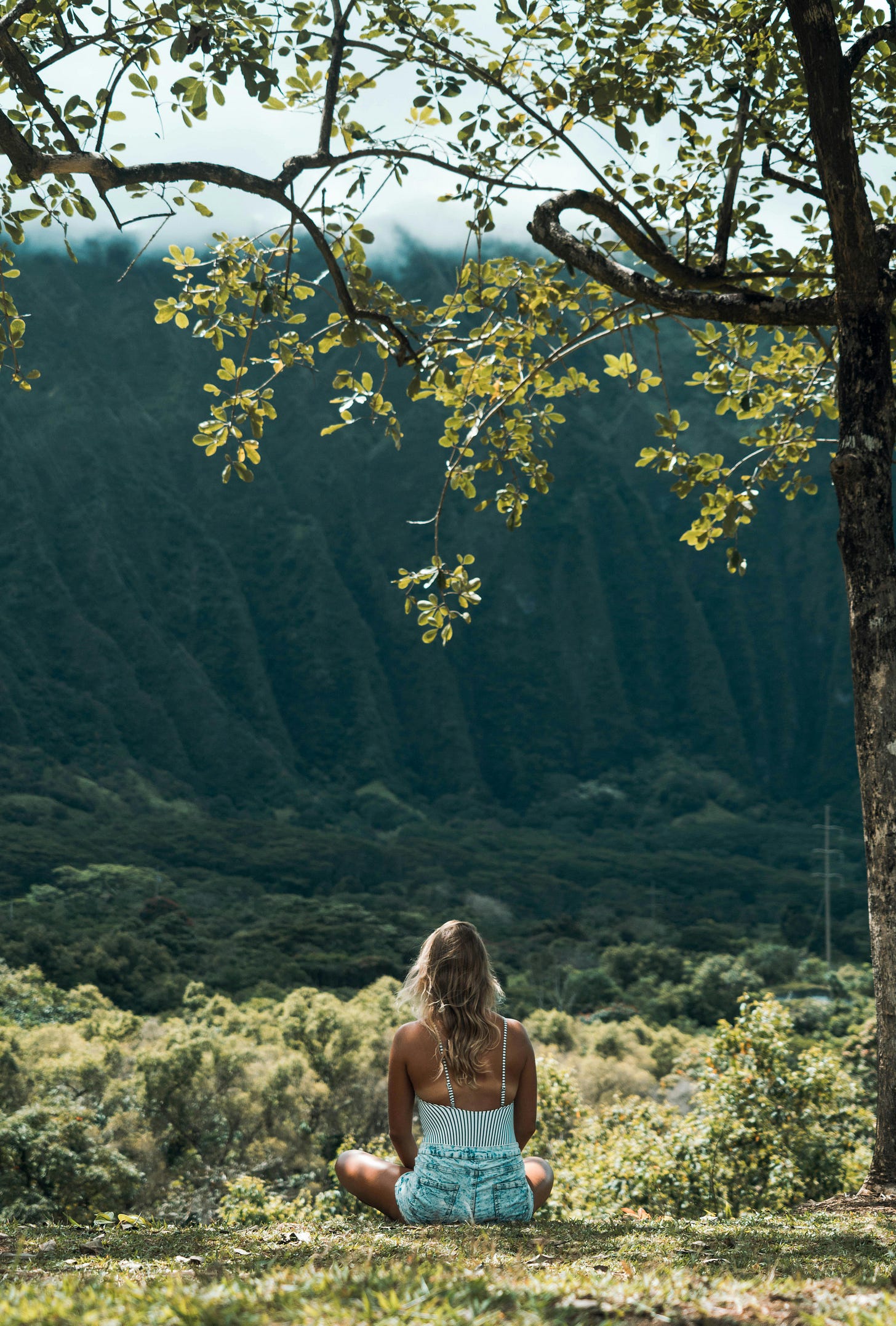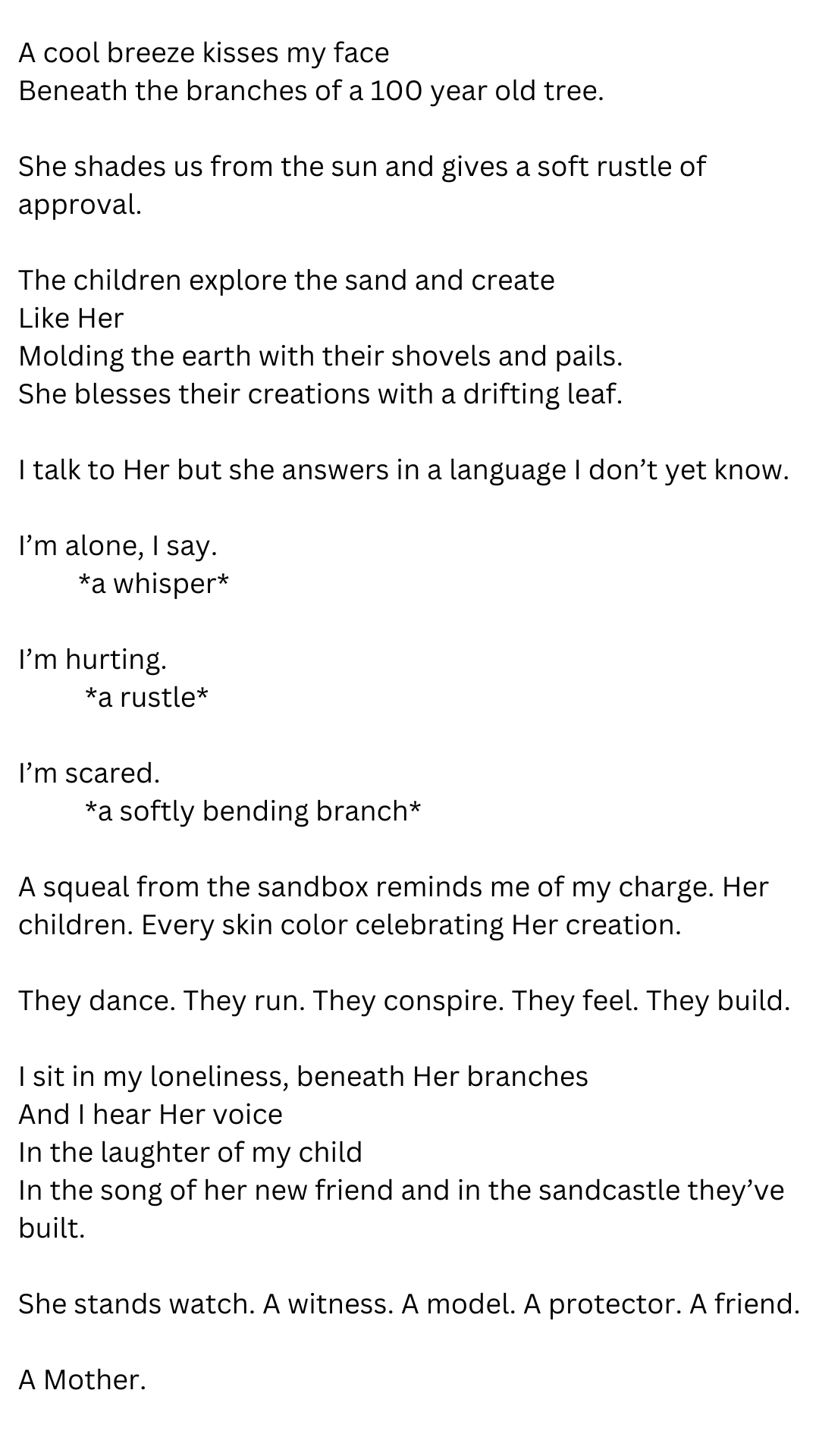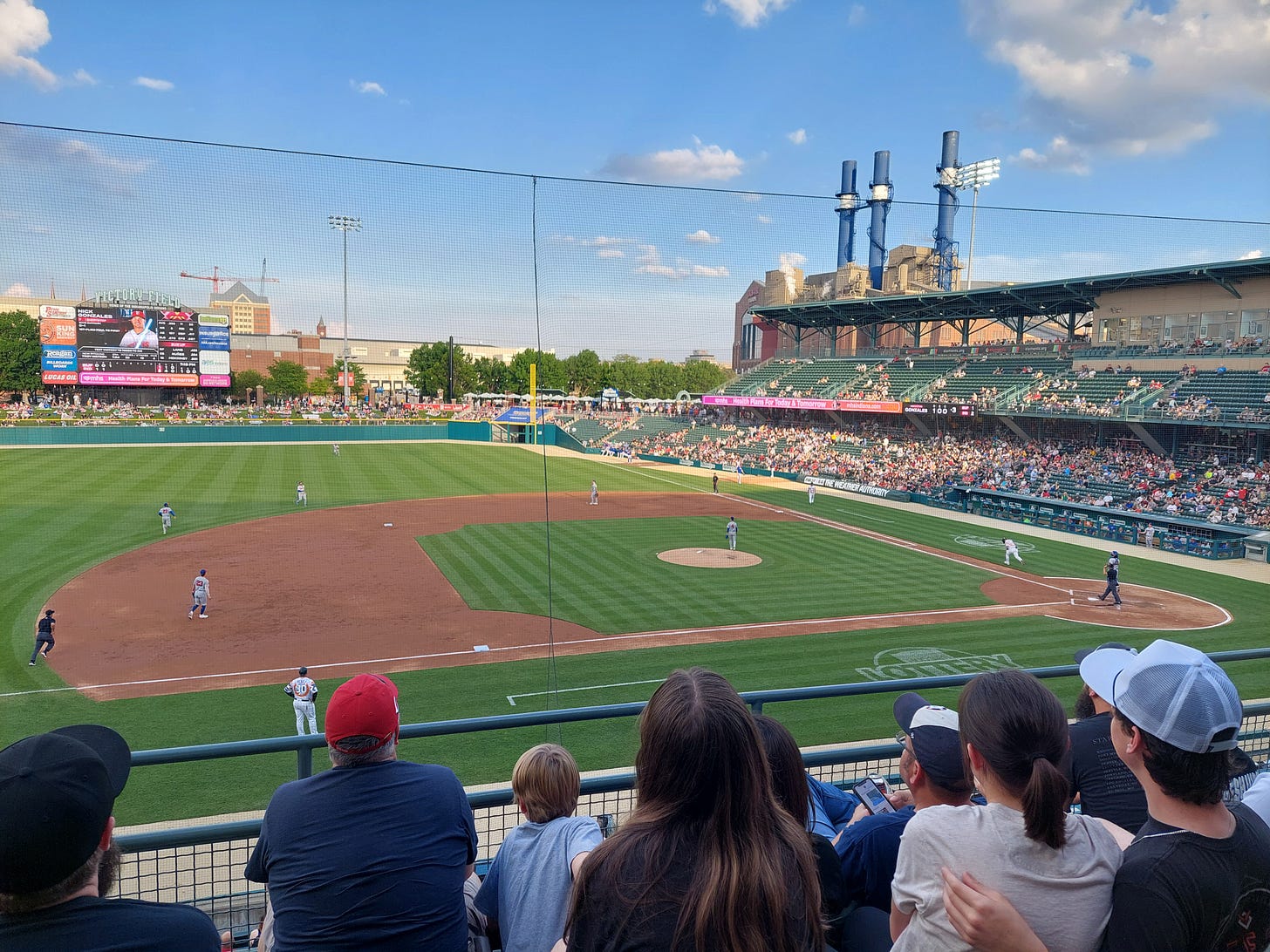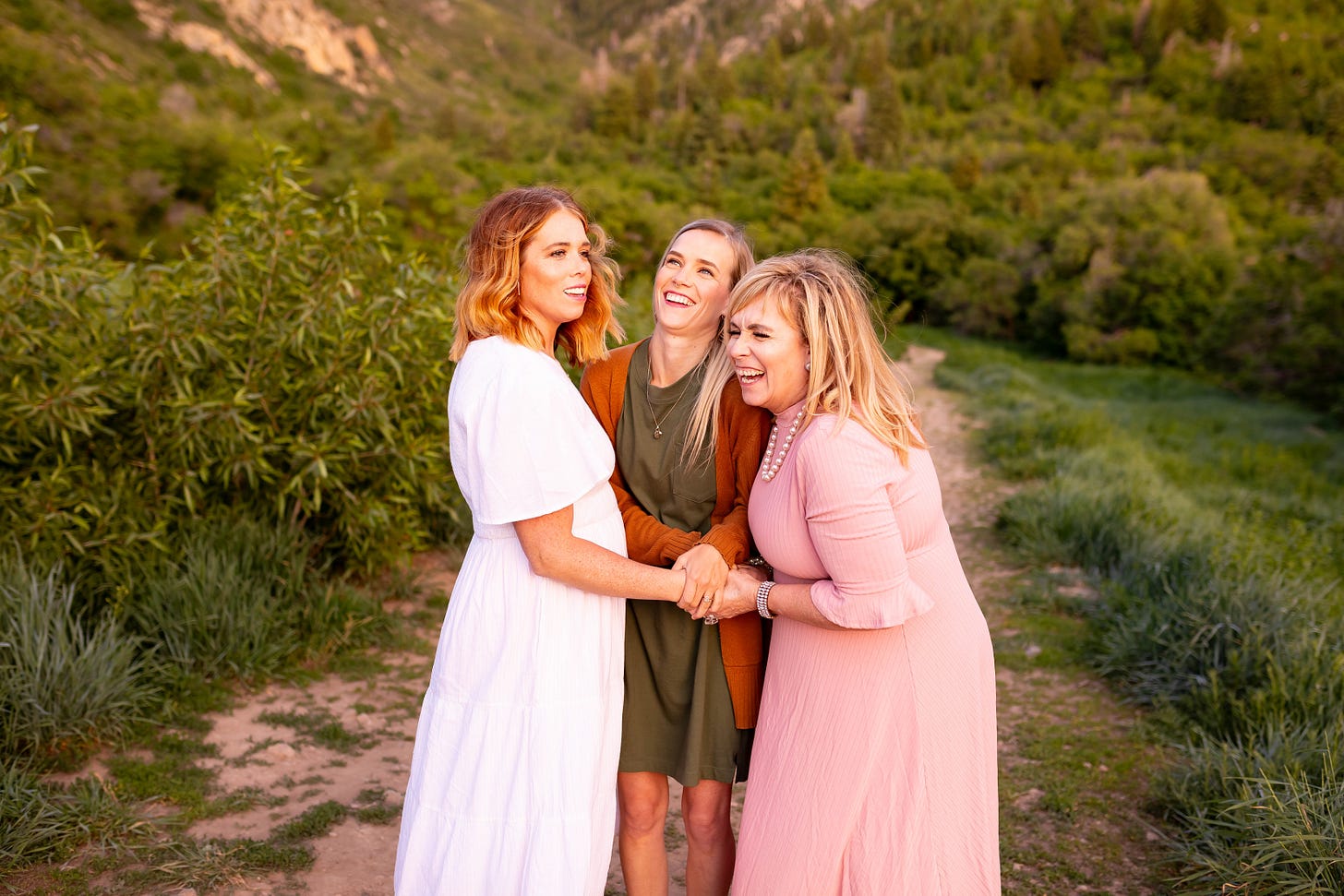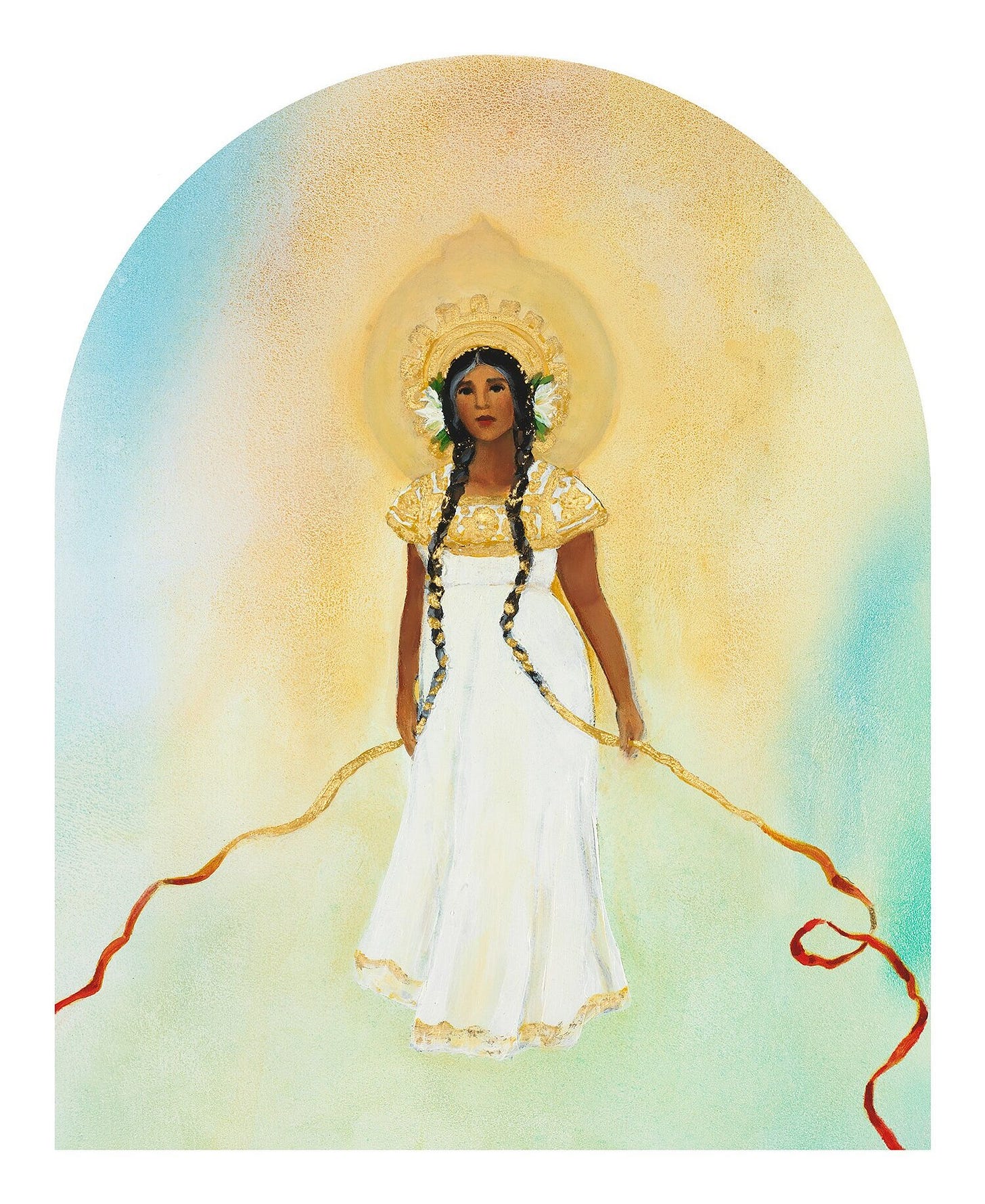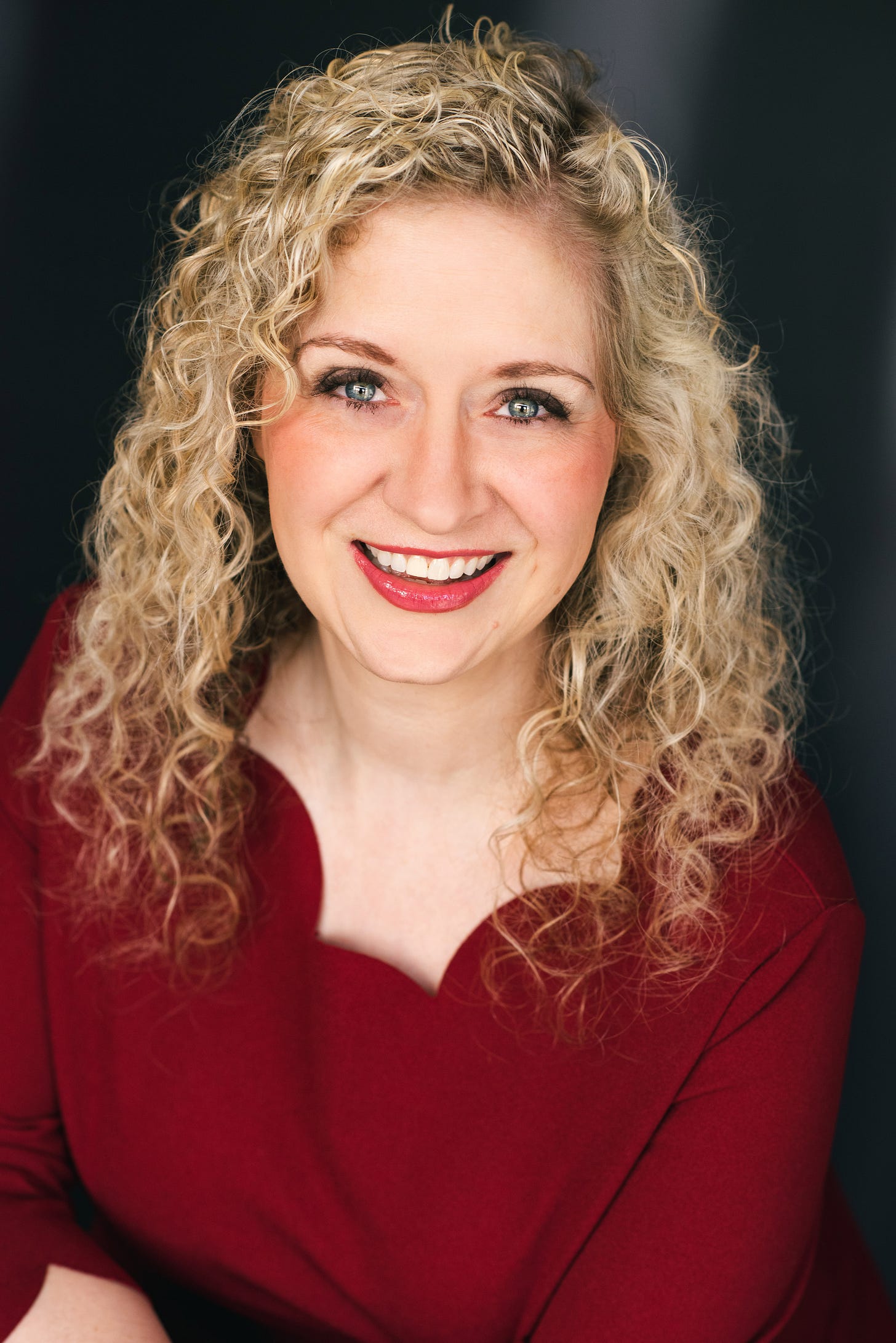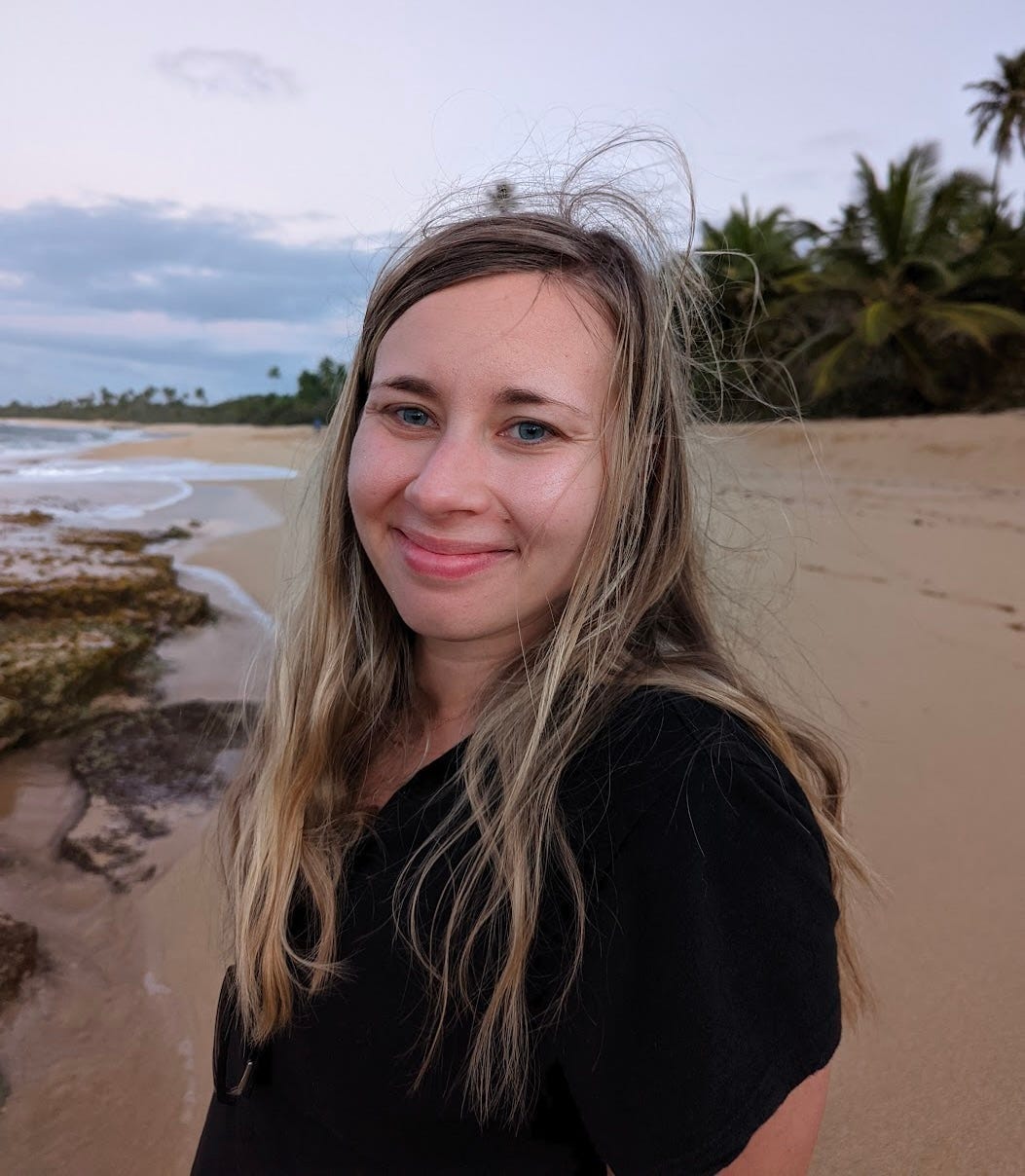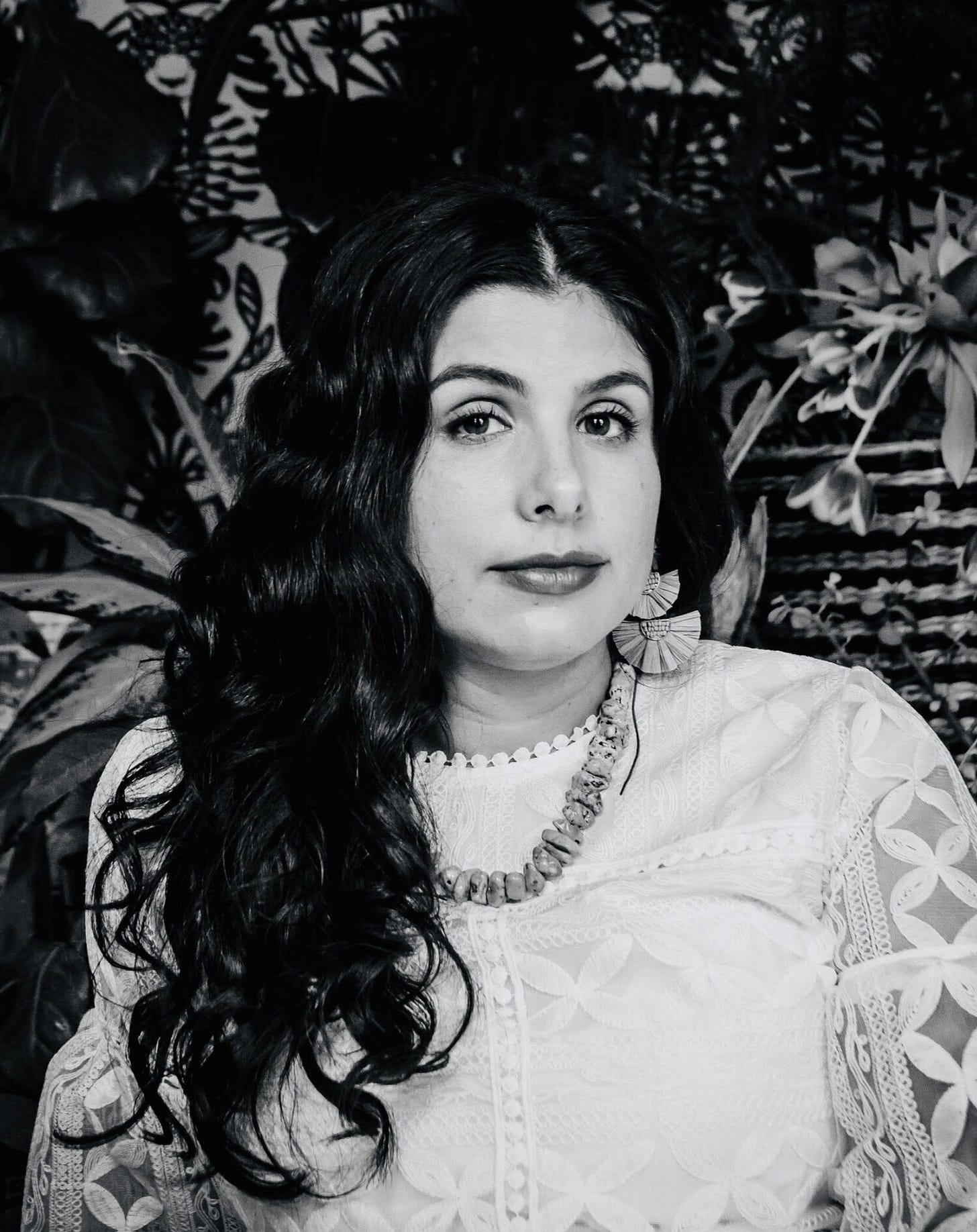Prayer
by Susan M. Hinckley
To Our Mother:
They make it sound as if you don’t like to be thought about. Hidden in plain sight, patterning the world’s wallpaper. Pulling it all together easy as my grandmother’s floured hands. But I can lose sight of you when I stop to think too much, look too hard for the kinds of details people act like I ought to already know.
Maybe you prefer to be felt about. Why else, when I look up, would you place this crash of yellow blossoms against the well of blue sky? Why send my grandchild bearing the faces of everyone I love, but a hint of the unknown too—some secret newness that remains between you and him? Why else would there be a whole universe, made only to be the object of wonder? Why would there be the tragedy of the world, all of us enduring together the death of everything in it?
So I hold you lightly, glimpse and fleeting breath.
So many things not explained, but hinted at. I can only assume we are meant to live on our hunches, we are meant to breathe and walk outside, if we insist on thinking about you. Walk and walk, walk to where the world defies all our most careful explanations.
Perhaps we are the same. I think you know; I do like to be thought about. But felt about too.
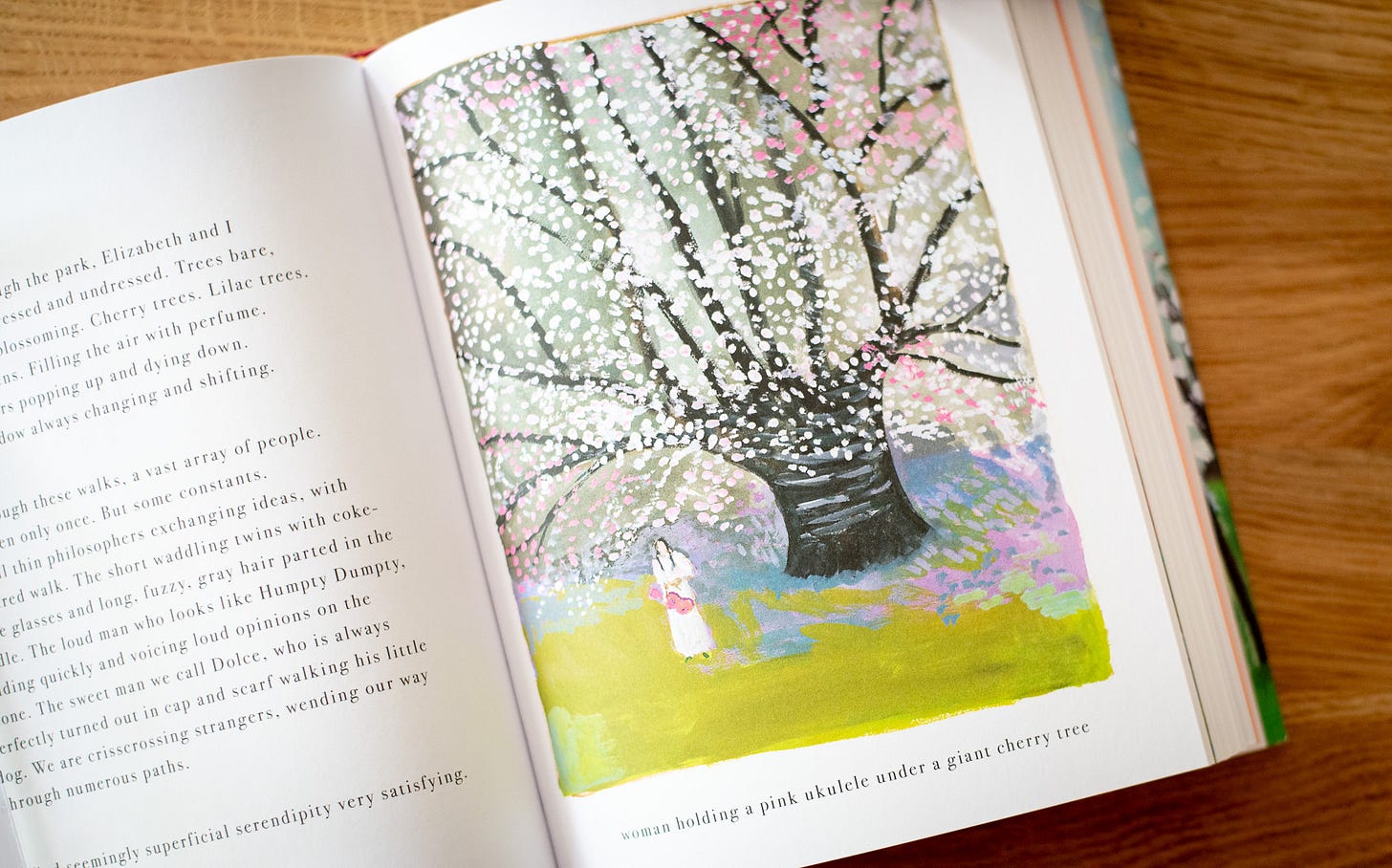
I Hate Mother’s Day
by C.A. Larson
(Editor’s note: At last! A Mother’s Day talk you can trust. C.A. says: “It was first given in 1986, then revised several times.”)
“I hate Mother’s Day,” one mother remarked
when I brought up the subject. “I just wish we could skip the whole thing.” “I know” another mother agreed. “I always end up feeling so depressed hearing about how wonderful I should be or even how good other people think I am, but I know I’m not.” And so began my journey to find out how other moms feel about Mother’s Day, and do some soul searching about how I feel. Of course, not everyone hated Mother’s Day per se, but most could relate to the feelings of inadequacy that honoring mothers sometimes brings. So many said it is complicated. I thought about all the times I have listened to Mother’s Day talks in church and how I compared myself to the mothers being talked about. The perfect mother, wife, daughter. Checks all the boxes … does everything right! I am approaching this subject with great care, not wanting to discourage or depress, but to encourage and to enlighten.
One of the first rules of public speaking is to know your audience. But sometimes at church I think we forget that in favor of speaking to the ideal. We all know the ideal. It is always there because it is what we have been taught. So what if we just think about how individuals might be affected by the idea of celebrating mothers? I know of one firsthand … my father-in-law hated Mother’s Day because he lost his mother at the age of 9. So every year as a child growing up and continuing into adulthood for the rest of his life, he had to endure that loss all over again. And I have a dear friend who lost her mom at the age of 3 … so she didn’t really know her. It caused her pain to be reminded of what she would never have in this life. Then there are all my single friends out there. Some of them wished more than anything they could have a partner and children, but they haven’t had the opportunity. What do you think this day feels like for them? And my married friends who are struggling with infertility and the long and painful journey that it is, and how alone they often feel. And there are those I know out there, and now work with as a therapist, who had difficult childhoods with absent, neglectful or abusive mothers. That shouldn’t happen to anyone, but it does. More recently, I have added a new category to my list: There are those who are moms who struggle daily with motherhood, even though it is what they were supposed to want to be more than anything else. SO MUCH PAIN!
Today I want to respect those who have a complicated relationship with this yearly holiday. And so, I wonder … do we not celebrate moms? Even though it is a holiday created by Hallmark to sell cards and candy, many appreciate a chance to pause and think of their mothers or their wives and have gratitude for the sacrifice of bringing a child into this world and raising it.
The fabric of our lives may look different from one another but interwoven into each of our fabrics are the same fibers and those fibers bind us together.
But wouldn’t it be so much better if we could do that with a reality check? That everything is not always rainbows and roses. And that maybe those who should really be celebrated are not the ones wearing a corsage … with a group of neat and tidy smiling children surrounding them and a husband looking on adoringly. Does that exist in real life, or only in advertisements and in 1960 sitcoms?
It has helped me immensely, in dealing with my role as a mother, to know that our problems and circumstances, although unique to us, are not unlike those of other women. The fabric of our lives may look different from one another but interwoven into each of our fabrics are the same fibers and those fibers bind us together. My reading of women in Church history and studying women in the scriptures has helped me see this common thread as it weaves it way through the ages—even back to Eve, the very first mortal mother on this earth.
I have wondered what it was really like for her. The scriptures don’t tell everything that would have been recorded in the journal of her life. I wonder if it was hard for her to set up a household after moving from the perfect Garden of Eden. We all know what a struggle it can be to keep house. And I wonder if she struggled to deal fairly with two sons that were so different, and how she must have agonized over the wrong decisions they made, just as we do. And yet I believe she would have loved them unconditionally, even as they were struggling and making bad choices.
And Ruth. Did she always love her mother-in-law enough to leave her land and her people to go with her? I wonder if that love was developed and nourished over time? I don’t think we hear that part of the story. Were there days when Ruth said to her husband (and Naomi’s son), Mahlon, that she had been with Naomi all day listening to her and tending to her needs and now it was his turn to spend time with her? (This may or may not be autobiographical.) I think I could learn a thing or two from Ruth! We too learn to deal with our spouse’s families that have different backgrounds from our own, and we try to appreciate their differences and even to love them as Ruth did so that when the time comes (as it did with Ruth and Naomi, now both widowed) she was able to say,
“Intreat me not to leave thee, or to return from following after thee, for whither thou goest, I will go and where thou lodgest, I will lodge; thy people shall be my people, and thy God, my God.”
And then there was Mary, the mother of Jesus. Although she knew well the mission of her son, I wonder if she ever asked, “Why me? Why him?” as she suffered along with him. It is easy for us as mothers to understand what it is like to ache for our children in their struggles. I’m sure that my mother-in-law must have cried this same cry in the days when her youngest missionary son (my husband) was kidnapped and held captive. And so, we recognize in our lives a thread of the fabric of our ancestors.
Don’t you think that before the 2,000 stripling warriors were ready to do battle, their mothers had days when they wondered if their sons would amount to anything … and if they perhaps had to remind them a hundred times to take everything they needed with them for their day’s assignments? And yet, when the moment of truth came,
“they did not fear death, and they did think more upon the liberty of their fathers than they did upon their lives, yea, they had been taught by their mothers, that if they did not doubt, God would deliver them. And they rehearsed the words of their mothers, saying, “We do not doubt our mothers knew it.”
That could be any of our sons, or daughters. Why do we not hear more about the bravery and accomplishments of the daughters? They are, all of them, prepared to do whatever battle lies before them.
Our goal should be to search our own souls to make sure our choices are right for us, and always remember that we have the right to choose.
What about our Mormon mothers from early Church history? There are too many stories to recall here, but so many were about trials, sacrifice and loss. My reading about these early women in the Church has shown me that they struggled with their roles as mothers even as we do today, and that they were compelled to do things in their lives that were criticized by others—even fellow saints. I have complicated feelings when I read about them now; how much was asked of them and how much they just followed, without question, what they thought was right. It helps me to not judge others because the path they choose is different from my own. Our goal should be to search our own souls to make sure our choices are right for us, and always remember that we have the right to choose.
One of those early women, Gladys Clark Farmer, writes this of trying to understand her mother’s choices in life.
“Once I asked my mother how she did it. She answered, ‘A day at a time’. I have never dared ask why she did it. When I was younger, I felt that she had sacrificed unnecessarily, that she had been a martyr to the supposed welfare of her family. She could have bought store-made bread, ready-made soap, and dairy-churned butter. My friends’ mothers did. Yet if she had been asked why she did it, I am certain the answer would have been, ‘I did what I had to do.’ Now that I understand her better, I realize that, given her life of struggle, hard work and sacrifice, she was emotionally equipped to act in no other way. She acted the role that seemed required of her.”
This has helped me to realize that as I look to the past, I must remember the context of the women whose stories I tell. They were often doing the best they could with what they knew, and what the circumstances of their lives dictated.
Someday, one of my granddaughters, with a life very different life from my own, may learn about my life and ask that same question of me. “How did you do it?” I think I will also have to answer, “One day at a time.” But I hope I will also be able to share with her what the different chapters of my life looked like and how I made the choices of what I did, when I did it, and who I was based on those times in my life. And I hope she will find a common thread that connects me to her.
And I will want to share with her the thread that connected me to my mother and grandmothers. When I first wrote this talk, my paternal grandmother was still alive. She had been alone for 25 years without her companion. I saw how lonely and discouraging life can be for those who live alone. I could only partially understand having not had that lived experience, but her life was connected to mine and I spent a lot of time when I was growing up at her home listening to records, playing cards and watching tv. And my maternal grandmother came into the home of her sister who died with four young children and took care of them, and then married her widow. That life could not have been easy as she went on to have two children of her own, and to support a man who was very busy building a business and working in church and community.
And then there is my mother. When I first wrote this talk, she was still alive. She would have 16 more years on this earth even though I would have never believed at that time that she would be gone so soon. She gave me a legacy of strength, hard work, and self-knowing. She was not allowed to work in the family companies because she was a woman. I would come to realize how sad that was because she had so many talents that could have been utilized. Instead, she channeled her energy into her home, church, community work, and managing her own investments (something she was very proud of).
I can see the threads of these three women that are now part of my fabric. I wonder what will be the legacy that I leave to my daughters and granddaughters (and sons and grandsons, because I truly believe that my threads also go into their lives). When I wrote this in 1986, my then 4-year-old daughter would regularly ask me what I was going to do when I grew up. She was starting to learn about choices. Now she is grown with children and a career of her own, and maybe she still wonders what I am going to do when I grow up. Because I believe we are all a work in progress until we die.
My original talk ended with a quote by my younger sister who had been babysitting my then three young children, while I got away with my husband. She had just returned from her mission in Peru, and she was touched by connecting with my children and realizing how strong the ties of Israel are that bind us together. But I want to end this version of my talk returning to the original statement of “I hate Mother’s Day!” I want to give that statement some kind of resolution. And so I was thinking about what I would want to hear about women that might resonate a little better for all of us. I heard a talk by a woman named Maira Kalman. I wish I could play you the video of her Ted Talk because she also had wonderful illustrations that accompanied her talk. It was titled, “What Women Hold.” Here is an excerpt:
“What women hold. It made me think of all the things that women hold literally and metaphorically. Balloons and grudges and heavy loads and cabbages and stupendous love and courage and a pink ukulele under a cherry tree. The home and the family and the children and the food. The friendships, the work of the world and the work of being human. Sometimes when I’m feeling particularly happy or content, I think I can provide sustenance for legions of human beings. I can hold the entire world in my arms. Other times I can barely cross the room and I drop, my arms frozen. There is never an end to holding and certainly there is often the feeling of never doing enough.”
Sometimes my capacity to hold seems endless and sometimes it feels like I can only contain myself.
This felt so real and raw to me. What women hold. I would add that we hold all the past, the present and the future—all those threads. We hold all the things that have been handed to us over the years. I have often felt like a human coat rack just taking anything and everything that is handed to me, the physical, the emotional and the spiritual baggage of those around me. Sometimes the weight of it is so heavy when those who share it are suffering. And sometimes it is so buoyant when it holds excitement and promise. Sometimes my capacity to hold seems endless and sometimes it feels like I can only contain myself. What do women hold?
That’s a question that I think is worthy of celebration. It has been happening since the beginning of time. It IS the common thread that binds us all together. Let’s celebrate that!
Beneath Her Branches
by Valerie Shumway Barton
Cheering From the Stands on Mother’s Day
by Megan Smyth
Imagine that you have grown up being told
that the most important thing you can ever do is play baseball. Most of the people you know play. Some are not very good and some are fantastic (and yet somehow don't think they're very good), but they made the team and they play hard every day.
Now imagine that you have prepared and wanted your whole life to play, but you never made the team. Sometimes you get to coach, sometimes you practice with the teammates, and sometimes you help with the gear. You don't get to play.
You go to as many games as you can and cheer with all of your heart because you love the game and you love the players. Most of the time you're perfectly happy to do so. But some days it's hard to watch even though you're glad for the people who do get to play because you see how hard they work and how much they love it. It's exhausting and it's rewarding, too.
One day every year, the players get a trophy. But the givers of trophies don't want anyone to feel left out, so they give a participation trophy to everybody in the crowd, too. And it's a nice, well-meaning thing to do, but sometimes it makes the people who tried and failed to make the team feel worse. The participation trophy is meant to remind them they are valued, but not because they are amazing crowd members who learned cheers and care for people in their own way. No, they are being honored as part of a team even though they don't get the glory of playing the game.
This is what it is like for me on Mother's Day.
I am watching and cheering from the sidelines, and am really good at batting and catching (my running and throwing skills are just okay). I like to think I'd be good at the motherhood "game" if I do get to play one day, but right now I'm not doing the hard work the real players do every day, rain or shine. I can experience vicariously the victories, injuries, and defeats, but it isn't the same.
Wishing me a Happy Mother's Day reminds me of what I am not, when there are a lot of other things I AM that are also pretty cool.
To me, Mother's Day is about the women who put in the work: mothers, grandmothers, step-mothers, adoptive mothers, foster moms, and so forth. I love celebrating my mom, my extended family, and my friends. They work HARD because they love their families. They are hard on themselves and deserve a lot more support and credit than many of them get.
I feel like if you want to celebrate "all women" you should make a bigger deal about International Women's Day. All women (just like all men) are different, so check in with those you know if you think it might be a sensitive topic. Some supporters in the crowd didn't make the team in spite of all of their training and connections. Others in the crowd like to watch but they don't want to play. Some players made the team but only ever get to sit on the bench. A lot of active players are burned out and wish they could take some kind of break from the game.
If we're talking about a day that is supposed to be set aside to honor mothers, it's okay to leave me out. I don't need or want a participation trophy for a sport I'm not playing. Wishing me a Happy Mother's Day reminds me of what I am not, when there are a lot of other things I AM that are also pretty cool.
Definitely show some extra appreciation for your mom, significant other, children, fur babies, and other family (or chosen family) this weekend. They deserve every bit of it!
Happy Mother's Day to the incredible women who want and get to be mothers. You are all MVPs in my book.
Thank God, I Understand
by Blakelee Ellis
You did the best you could with what you were given.
That’s the number one thing I’ve learned as I’ve become a mother. Sleepless nights, thinly worn patience, overstimulation have been my education. Most days I’m just doing my damn best day after day after day. I hope it’s enough for my children. Just as I’m sure you hoped it was enough for me.
When I look back at my childhood, I can see that you cultivated goodness, light, and love. For many years you soared through life as Super Mom, with creativity, energy, and passion that could not be contained. Then I learned you were human. Alongside the light there was dark. That’s life and life is not black and white. Life is not all good or all bad. My childhood was good and then there were years that seemed lost to me. Years where I seemed to fend for myself and wondered where you had gone. Now I know the truth, your truth.
Thank God, I know your truth.
Through those years you fought and adapted. You survived as silently as your grief would allow. You protected us by bearing the weight of your anguish all alone. You thought you were protecting us. The painful reality is that your isolation chipped away at your soul, and we all paid the price.
Your community of saints, a community you had been told would always be there for you, turned their back. They dismissed, they disowned. You were drowning in an emotional and mental storm with no one reaching out to help you. No leader extending grace. No organized group of moms weathering the storm together. No social media to connect you or to let you know you weren’t alone in your agony. No messages to leave you feeling grounded and hopeful. Not even a father willing to dry your tears and hear your truth.
Time was your enemy. It took an instant for your world to collapse, but years to piece it back together. You grieved and along the way you started the slow, agonizing work of stitching your soul together again. You were changed forever. The new you was woven out of compassion, grace and sheer will. You believed that Christ had set you on a path of love and acceptance. This path led you away from orthodoxy, doctrines, and the warnings of the leaders around you. You felt alone, but you cried out to God.
Thank God, you felt heard.
Now here I am, on that same path. Crying out to God and crying out to you.
You navigated your path in the best possible way you knew how and supported me how you could when you could. Past me, younger me, deemed your support as lacking and fundamentally insincere. I didn’t understand, accept, or remotely appreciate the new you. I was cruel. I was naïve. I was young.
Time has been your ally. Who I am today: older, wiser, experienced, stands in awe at your brute mental strength and persistence to hold fast to what you believed. Now here I am, on that same path. Crying out to God and crying out to you.
Thank God, you hear me.
You offer me grace despite my past judgement, lectures, my calls to repentance. We cry over wounds both old and new, healed, and unhealed. I rage, fall into your arms and you hold me. An endless cycle of growth and acceptance. In these moments, my pain is subdued because of you. I am not alone. Not like you were. We part and you whisper, “Now you understand.”
Thank God, I understand.
Circle of Women
by Kandis Lake
Diosa
by Michelle Franzoni Thorley
Do you ever think about Heavenly Mother? Why don’t we talk about her? I’ve definitely had so many questions. This image of Heavenly Mother is wearing a traditional Indigenous Mexican headdress, embroidered top, and ribbon braids. Her ribbons of divinity flow down towards anyone who seeks her. —Michelle
Contributors:
Susan M. Hinckley
Susan has spent her whole life trying to explain herself in words and pictures. Co-creator of the At Last She Said It podcast, she loves big questions, green chile, word puzzles, being surprised by her own strength, and discussing it all with 3 remarkable adult daughters she swears raised themselves. She’ll drive any distance for a glimpse of her grandkids, preferably in a fast convertible.
C.A. Larsen
C.A. is a therapist in Scottsdale, AZ, and is a frequent guest on the ALSSI podcast. Find more of her writing in Say More | No. 4.
You can also hear more from C.A. in these podcast episodes:
Ep. 37: If It’s Not About the Clothes, What’s It About?
Ep. 65: Healthy Boundaries, Healthy Women
Ep. 71: The Scent of Resentment
Ep. 107: In Search of Self
Ep. 128: It’s Not Easy—A Conversation about Having Hard Conversations
Valerie Shumway Barton (she/her)
I thrive on connection. I am quite often insecure and ask my husband regularly to offer a verbal “atta girl” when I’ve done something good. My daughter thinks I’m the best, and sometimes the worst, and is sometimes a witness to my frequent use of “grown-up words”. I don’t know where I land with a belief in god, but if there is one, they must be worthy of worship. I find deep spiritual reward in the words of women who are finding and using their power.
Megan Smyth
My favorite titles are “aunt”, “daughter”, and “friend.” Growing up, I wanted to be a writer and an actress, and I’m now doing it, making a living as an Instructional Designer and playing in the evenings in the local community theater scene. I have been a member of the Church of Jesus Christ of Latter-day Saints since birth and cherish memories from my mission. As a veteran of Singles and Mid-Singles Ward, I very much appreciate the discussion and point of view from the ALSSI podcast. I’m honored to contribute!
Blakelee Ellis
Blakelee is an energetic, creative, extrovert who loves dance, photography, cooking and baking. Her favorite form of self care is reading a good book in a comfy chair. She continues to deconstruct, grow, love and learn more about herself. She has been married for 15 years and has three children.
Blakelee is so thankful to be a part of the ALSSI team and connect with so many other women.
Kandis Lake
Kandis is a mom to littles, a bookworm, a writer, and a registered nurse. She feels closest to God when in nature and when reading beautiful words. She loves family history and learning new things. She lives with her family in Utah and enjoys adventuring with them as often as possible. You can read more of her writing here.
Michelle Franzoni Thorley
Michelle’s work focuses on our ancestral power to heal. She is a self-taught artist who has claimed power through embracing her Mexican-American heritage and her experiences as a woman artist. Her work has been displayed at the Writ and Vision gallery, Latter-day Saint Church history museum, Abravanel Hall and the Springville Art Museum. She has been interviewed for podcasts and radio shows for her unique views about art, racial equality and family history. She spoke at the Center for Latter-day Saint Art in New York City in June 2019, at BYU family history conference in Provo Utah in October 2019, and at Rootstech global and family history conference in Salt Lake City in February 2020. She is passionate about family history and the stories of women. Her work and words can be found on Instagram at @florafamiliar where she encourages friends and followers to gain racial literacy and racial stamina. She lives in Utah, with her spouse and children.
Hate ads? So do we! Thank you for subscribing to keep the podcast ad-free. ALSSI is a community where women can say what we need to say, and that includes you. Send us a voicemail, start a chat thread … or write a piece for a future Say More!



